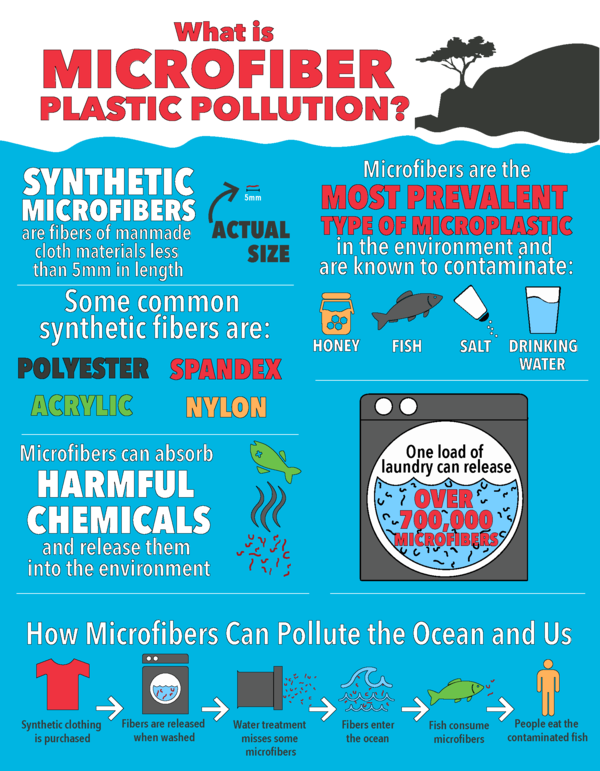G2Voice Broadcast #167 – How to eliminate
the symptoms called AUTISM Spectrum Disorder,
ASD, with Chlorine Dioxide by Kerri Rivera
Sunday, Nov. 24th , 2019
10 AM EST

Tom's Blog on Life and Livingness
G2Voice Broadcast #167 – How to eliminate
the symptoms called AUTISM Spectrum Disorder,
ASD, with Chlorine Dioxide by Kerri Rivera
Sunday, Nov. 24th , 2019
10 AM EST

There’s probably not a single parent in the western world who’s missed the fact that it’s challenging to raise a drug-free kid to adulthood. The environment makes it hard, with so many drugs on the illicit market and new distribution methods making it so much easier to acquire them. And kids themselves make it so very hard simply because they lie about their drug use.
Every young person who yields to temptation and reaches for drugs or alcohol for the first time has their own reasons. It could make them feel grown-up or more adventurous. Maybe they feel like their own life is boring or they resent the restrictions that school, teachers and parents place on them so they’d love to feel rebellious. Maybe they are socially uncomfortable or lack confidence and think drinking or drugs will help them relax. There are so many reasons. The key point here is that once a teen or young adult yields that first time, they now have a secret to keep.
https://www.narconon.org/blog/lies-teens-and-young-adults-tell-their-parents-about-drugs.html
From a newsletter by The Healing Miracle (about Stem Cells).
Dairy is a confusing topic for many people, and so many “gurus” out there make things even more confusing with contradicting advice for the average person simply trying to eat healthy and improve their health. But in this email, I want to briefly talk about yogurt and the effect on your blood sugar and a few studies in relation to type 2 diabetes as well…
In a report published in 2014, by Frank Hu, a Harvard researcher, included about 459,000 participants in 3 studies, and showed that yogurt intake was associated with a 17% reduction in type 2 diabetes risk.
However, it’s important to note that the type of yogurt must NOT be sugar-sweetened or artificially sweetened yogurt… It’s vitally important to eat PLAIN, FULL-FAT yogurt (grass-fed preferably) for the most benefits.
Sweetened yogurts will do more harm than good, but a good plain full-fat yogurt has relatively low amounts of natural sugars, while also containing high quality protein and healthy fats, both of which help to control your blood sugar levels, appetite, and balance hormones. In addition, the beneficial probiotics in a good plain full-fat yogurt help to improve gut health, and can benefit diabetics in many ways due to improved digestive health.
To make your plain full-fat yogurt taste better if you like things a little sweeter, just add a little stevia or monk fruit sweetener, and a handful of fresh or frozen berries and maybe some pumpkin seeds or nuts for a delicious and balanced lunch or snack that keeps blood sugar controlled and boosts fat loss too.


This is the third and final part of my article, it includes references and footnotes. There was no attribution for the photo of Kaufauver, which is unfortunate.
Pushing the Medical Envelope: Mandatory Vaccination and the power of the Pharmaceutical Corporations
Martin J Walker MA
Part Three Too Late For Another Kefauver
The corporations don’t have to lobby government anymore; they are the government. Jim Hightower
If we, as individuals, want to keep control of our democracy – rather than have a government paid for by corporate interest cheques – then we have to fight back now and make sure our system reflects the belief that people, not corporations, control our democracy. Michael Bennet
The writing about vaccines and autism, both in the US and the UK tends to concentrate on scientific matters – exacting circumstances of vaccine damage and such things as clinical trials. This is somehow inevitable, principally because both those who suffer and their parents have now such a full and stressful life, that they have little time for larger campaigns.
Politically, however, the broader issues of corporatism and the power of the pharmaceutical corporations are being obscured. And needless to say, this diminishment works in favour of the drug cartels.
During all my work on Dr Wakefield’s case and with the parents of vaccine damaged children in the UK, the pharmaceutical companies were the least mentioned behemoths. In fact, the cartels have successfully hidden behind this stilted discourse about whether or not mercury, aluminium, or measles strain virus, is responsible for vaccine damage and regressive autism. As if only we could get the formula right everything would be OK.
Eyes are forced continuously away from the real focus of the conflict, heads turned away from the power of the global drug cartels and their decisions to treat every child in the world as if they were mirror images of each other.
The contemporary societies in the developed world are guided by two things, firstly the development of science and technology and secondly the ease of product introduction and continuous presence in the consumer market. Let’s take fruit and vegetables, while bearing in mind mobile phones. From the 1950s onwards new chemical pesticides began to be used by agricultural growers. The consequence of the first pesticide use was a massive increase in cancers amongst farmers, particularly in the New World and Oceania. Commensurate with this development came that of the supermarket.
The consequences of the supermarket were a fall in the knowledge of shoppers about nutrition, the advent of plastic bags in the millions which were to become an environmental outrage, and the disappearance of aspects of the community, little conversation during shopping, the demise of the corner shop and a seeming lack of need for people to grow their own food, followed later by attempts to stop people growing their own food (1). As well a growing use of energy in the form of air miles and a growing exploitation of workers in foreign lands.
When food production turned from businesses to corporations, small groups of people got very rich and more deeply able to control both the production of food and its distribution. Along with this growth of financial elites and large corporations, came a growing lack of control for consumers. Parts of the budgets of agricultural corporations were used to propagandise against organic food and domestically grown food.
The advent of mass pesticide use and the supermarket changed the way that we live. However, these changes were not agreed upon by any local or national democracy, any town hall meeting or Swiss style digital plebiscite, the changes were brought about by the use of developing technology and the growth of a ‘free’ capitalist economy. The organisation of life began to be taken out of the hands of the ‘lay’ population.
When voices are raised against this way of living and moving forward, those who raise objections are accused of wanting to return to a medieval age, or wanting to halt progress. Increasingly such voices are not observed, to hear them would involve standing still for a moment, giving weight to our individual nature, assessing the future and talking about alternatives. For those running down the technological hill in a dash for profit this is no good and t is at this point that the end of democracy begins.
The battle over developing science and technology such as GMOs, the disappearance of venues for criticism, the dissolution of participation and democracy, moves incredibly quickly and soon advancing technology and the rush for profit extends to more and more parts of our lives, regardless of the consequences. (2)
Nowhere is the growth of corporatism, the co-operation of large companies with small governments, more evident than in the growth of the pharmaceutical companies. As a result of the drive for profit, technological development and the resultant decline in democracy, every citizen now faces the most serious battles over their own lives, bodies and spirituality and that of their children and dependent loved ones. Playing as they do on the ill health fears of every individual, they have a ready market of apparently sick or frightened citizens.
Pharmaceutical corporations accompanied by the ideology of science are moving into every aspect of our lives and infiltrating many of the institutions of organised society. As a result of the pressure to maintain sales, there is now, in the words of the World Health Organization’s (WHO), ‘an inherent conflict of interest between the legitimate business goals of (pharmaceutical) manufacturers and the social, medical and economic needs of the population’.
Following the reduced market on patented specific illness drugs, vaccines have only recently moved to the forefront of profitability. From a position in 1953 when the US CDC recommended 16 doses of 4 vaccines between two months and age six for US citizens, to a situation today where 49 doses of 14 vaccines are advised before the age of 6 and 69 doses of 16 vaccines by the age of 18. Increasingly the pressure is on for these vaccinations to be both further combined and mandatory. (3)
The global pharmaceuticals market today is worth US$300 billion a year, a projected US$400 billion within three years. The 10 largest drugs companies control over one third of the market. These companies currently spend one third of all sales revenue on marketing their products roughly twice what they spend on research and development. Individual companies and their annual earnings are as follows: Pfizer, USA: profit of $22bn in 2013. Novartis, Switzerland: profit of $9.2bn in 2013. Sanofi, France: profit of $4.9bn in 2013. Roche Holding, Switzerland 2014, profits of $12bn. Merck & Co., USA, the company’s profit in 2013 $4.4bn. GlaxoSmithKline, UK profit of $8.5bn in 2013. (4)
The full vote of the Senate on mandatory vaccines in the Sacramento mandatory vaccine Bill 277 is still to come. But the preliminary vote of the health committee brought to public light information about pharmaceutical interests in the Senate. Through 2013 and 2014, prior to the vote, pharmaceutical companies and their trade association donated more than $2 million to individual lawmakers, members of the Assembly generally and seven members specifically of the Senate health committees. (5) In addition, the pharmaceutical industry donated more than $500,000 to outside campaign spending groups that helped elect some current members last year.
Sen. Richard Pan, a pediatric doctor, was the top recipient of industry campaign cash. Pan, apparently a Democrat who sponsored the Bill, received $95,150, while the other six members, Hernandez (D), Holly Mitchell (D), Brian Maienschein (R), Bonilla (D), Bonta (D), Gomez (D) of Health Committees received amounts between h $34,000 and $68,000 (5)
The top five out of 11 corporations and trade groups that donated the most money to the Senate during years 2013 and 2014 were Johnson & Johnson Inc. ($670,226), GlaxoSmithKline ($593,729), Eli Lilly & Company ($473,963), Gilead Sciences Inc. ($274,332), and Biocom PAC ($253, 224). (5)
The issue of mandatory vaccination strikes at the very heart of the democratic principle. If it was organised and structured by debate, including nominated representatives, scientists and the laity, if the debate covered civil rights and science, it might be possible to justify it. When all the evidence for it is created and manipulated by profit grasping corporations, it is bound to be a disastrous oppression.
The idea that Corporations linked to ‘government’ will overcome democracy has a pedigree of three centuries. The US founding fathers of an independent North America, free of the British, could see the dangers. (6)
‘I hope that we shall crush in its birth the aristocracy of our monied corporations, which dare already to challenge our government to a trial of strength, and bid defiance to the laws of our country.’ Thomas Jefferson.
‘The power of all corporations ought to be limited, […] the growing wealth acquired by them never fails to be a source of abuses.’ James Madison
Later in the 19th century, the steel, coal, oil and cattle Barons were developing a power which easily influenced and combined with government. By the 1920s modern capitalism began to reform, trying to halt the excesses of the big corporations but by the 1950s the cat was trying hard to get out of the bag again and corporations were becoming bigger and bigger. However, serious postindustrial writing and investigations about the rise of corporations and the subsequent death of democracy really came to the fore after the end of the 20th century, and at the start of the 21st century.
Following the second world war, the already conglomerate industry, headed by Rockefeller interests, began joining with independent companies to form massive corporations, monopolies in everything but name.
Monopolies are the bane of capitalism and those who are ruled by it. Monopoly converts the homey domestic structures of small company competitive capitalism which accompanies local and domestic democracy into a stifling economic and political totalitarianism which smothers competition and denies choice to the consumer. Throughout the 1950s and 1960s, there was much discussion about cutting back monopoly.
Estes Kefauver
In the 1950s, a Democratic senator, Estes Kefauver rose to prominence in the US. His ‘issue’ was monopolies – he wanted to stop them and return to small unit competitive capitalism envisaged by the founding fathers. Kefauver set up and organised a series of hearings, at the centre of which were the pharmaceutical companies.
The results of those hearings were turned into law. Kefauver had drive and ambition, a man of indomitable energy who never gave an inch and was hated by his fellow Democrats as well as those in the corporations.
In the 1950s Estes Kefauver wrote: ‘With these mergers, competition has been lessening. The “big” in all facets of American business are becoming constantly more powerful. We have, today, the “big” in the automobile business, the “big” in the steel business, the “big” in the oil business, the “big” in the aluminum business, the “big” in the meat industry, as well as in many other industries too numerous to mention’.
In December 1959 the drug industry phase of the Kefauver sub committee hearings began and lasted for ten months. (7) By the start of the hearing, the subcommittee staff had carried out major investigations, compiling extensive data on pharmaceutical prices and profits. They had interviewed a large number of people who came into contact with the industry.
Kefauver’s cohworker Irene Till had already contributed chapters on the milk and oil industries to Walton Hamilton 1938 book, Price and Price Policies. When Kefauver died, it was Till who completed In a Few Hands: Monopoly Power in America. (8) Till’s two areas of focus in her briefing to Kefauver were the patent law, which protected companies from competition, and what she called the ‘close identity of prices’ set by manufacturers, asserting that big companies practiced ‘price leadership’ and that there was a lamentable absence of foreign and domestic competition.
Around 150 witnesses and their assistants appeared before the subcommittee. Testimony was limited to four groups of drugs: cortical steroids, tranquilizers, oral antidiabetics, and antibiotics. The Kefauver Hearings focused on classic economic models and to some degree missed the point of future corporate growth. After the Second World War, things were to change radically, as the real future of corporatism – the linkage of government and corporations – was to become clear.
Kefauver and Till’s work resulted in 1962 in the KefauverHarris amendments to the 1938 Food, Drug and Cosmetic Act, which were to be acted upon by the FDA in its early years. This Act, together with a Pure Food and Drug Act, was brought into being following Upton Sinclair’s amazing investigation and written account of the depredations of the Chicago meat packers, which resulted in his book The Jungle. (9) The most important aspect of the Kefauver Harris amendments is that it ensured that all drugs licensed went through drugs trials.
Thalidomide also began a new route for anti trust campaigning with campaigners beginning to focus on the consumer safety aspects of corporations and some fifty years later a great variety of consumers and afectados were campaigning on the health repercussions of monopoly power.
It was one woman rather than a campaign that beat Richardson Merrell into submission in the case of thalidomide, in the US marketed under the trade name of Kevadon. In 1960, Frances Kelsey was hired by the FDA in Washington, D.C. She was then one of only seven full time and four young part time physicians reviewing drugs for the FDA. (10) Kelsey who died in 2015 at the age of 101 was determined that the drug should not be licensed in the US, principally because it had not been trialled sufficiently and there were many gaps in its safety data. The company wanted to market Kevadon as a tranquilliser and painkiller with specific indications to prescribe to pregnant women for morning sickness.
Even though it had already been approved in Canada and over 20 European and African countries, Kelsey withheld approval for thalidomide in the US. Despite pressure from the manufacturer, she persisted in demanding additional information. Consequently thalidomide was never licensed in the US. Morton Mintz, author of a Washington Post article, said ‘Kelsey’ prevented … the birth of hundreds or indeed thousands of armless and legless children.
The FDA still publicises this regulatory breakthrough of sixty years ago, ignoring modern conditions and hoping people believe that the Kefauver Harris Amendments were the last word in regulation. The amendments established a framework that required drug manufacturers to prove scientifically that a medication was not only safe but effective. Of course, there were ways of circumventing the amendments and who could have foreseen the massive expansion of FDA itself and its infiltration by agents of the pharmaceutical corporations?
Four books have always stood out in my mind from the beginning of my writing about pharmaceutical companies. The first one is J. Braithwaite’s Corporate Crime in the pharmaceutical Industry, (11). Braithwaite’s book exposes the ‘everyday and taken for granted’ corruption in the industry. It illustrates in detail a built in culture of corruption. The second book is, In a Few Hands: Monopoly Power in America by Ester Kefauver and Irene Till (12).
I started researching drugs and drug companies in 1987. At that time, the literary landscape of corruption in the pharmaceutical industry appeared relatively barren until I found this book about the analysis of pharmaland as a massive monopoly phenomena.
The third book is the best book, to my mind, about the Thalidomide crimes: Thalidomide and the Power of the Drug Companies. (13) Written by Henning Sjostrom, one of the lawyers who fought the Swedish thalidomide cases, and Robert Nilsson, who became a doctor and then acted as an adviser and consultant in the thalidomide trials. Perhaps the best thing about this book is that it dispels all the notions proffered by the pharmaceutical industry, since the second world war, as to why pharma personnel and companies should deserve special privileges.
Thalidomide is today often quoted as a drug crisis that was completely resolved with an agreement to give to those affected life long cash settlements. The idea that this happened as a consequence of the humanitarian leanings of those at the producing German company, Chemie Grunenthal, is dispensed with by the book.
In some countries the thalidomide cases were resolved quickly while in others, and particularly in Germany, the originating producers of the drug fought with a kind of fascist authority, playing every trick in the book. Chemie Grunenthal employed teams of private detectives to root around in the lives of both doctors who offered adverse opinions about the drug, and even those who suffered the most serious adverse reactions. Chemie Grunenthal closed down all communications through medical media channels and isolated and spread rumours about doctors who defended their patients.
Despite the drug being withdrawn in Germany. In other countries, even in other parts of Germany, the drug was prescribed under other names. In Italy thalidomide was prescribed under 10 different trade names. From the thalidomide cases grew many of the contemporary practices used by lawyers and PR firms.
The fourth book, Divided Legacy Vol. III, is by Harris L. Coulter, (1932 – 2009), (14) one of the outstanding intellectuals and writers on homeopathy and medical matters generally. Coulter was a brilliant academic who also wrote frequently about the dangers of vaccination. In the early 1980s Coulter met up with Barbara Loe Fisher and later they worked together on DPT: A Shot in the Dark. (15) (16)
Volume III of Divided Legacy is a painstaking account of the rise of monopoly pharmaceutical medicine in the 19th century. It charts the rise of the professional association of doctors, the AMA, in its beginnings, led by the messianic Morris Fishbein. The book tells in glorious detail how the AMA organised against homeopathic practitioners and how they gradually sculpted a monopoly practise for their Association.
When Rockefeller first began building a medical industry in the first decades of the 20th century, via which he could distribute and market the drugs in which he had a monopoly interest, he also began by influencing the education of doctors. Under Abraham Flexner, Rockefeller’s doughty medical academic adviser and educational expert, the centres of medical education in the US were cut from 650 to 50. (17) Colleges, schools and communities which helped black people and women students were diminished and white male doctors were primarily trained in higher class Medical Colleges and Universities, principally funded by Rockefeller in the US and UK.
One of the consequences of these cuts was that black and women patients in need of medical care were increasingly ignored. In Britain and America, pharmaceutical doctors waged war against homeopathy and other forms of non allopathic medicine. Perhaps the most spectacular case, in recent years, is that of Greg Canton, manufacturer of herbal cancer treatments, (18) who after serving a three year prison sentence in 2003, on charges trumped up by the FDA, went with his wife to live in Ecuador. Acting illegally the FDA sent staff to Ecuador where they kidnapped Canton and brought him back to the US. (19) (20)
They created classic anti competition defences strategies of their professional position by forcing doctors who were also homeopaths, for example, out of the profession. As they increasingly came to be tied to pharmaceutical companies, doctors became no more than ciphers for the drug corporations. All sense of independent and natural, and even nutritional health care was drummed out of them. Today, they do what their pharmaceutical training has equipped them to do – dispense drugs. (21) (22)
The contemporary period is not the only period that penalised, imprisoned and sometimes put to death herbalists. The Inquisition, which continued through the 16th century and into the 19th century, regularly ‘tried’ healers who they defined as witches.
Cherry picked research: There is next to no scientific research into any health modality outside pharmaceutical medicine in either Britain or North America. What research and which journals there are do not get quoted in the mainstream citations. This is despite the fact that some research is funded by citizens, local and central government. There is, of course, reams of research into homeopathy and acupuncture in other countries, for example, but this is never referred to. Jacques Benveniste, a leading French scientist who, after extensive research, wrote a research paper on the memory of water, which went some way to proving the principle of homeopathy, was attacked by CSICOP and John Maddox, the editor of Nature, sacked from his post at INTERM and deprived of any research grants. (23)
Prescribing: There have been numerous cases over the last decades in which companies have been caught plying doctors with gifts, money and even prostitutes. Doctors have been used to enrol patients in trials, giving them unlicensed medicines. The biggest case of this kind recently took place in China, where employees of GlaxoSmithKline were found to have bribed hospitals, doctors and others to prescribe Glaxo drugs. Five company managers were given suspended prison sentences and Glaxo was fined $500M. Separately, Glaxo, they say, has been investigating claims that its employees bribed doctors in Iraq, Jordan, Lebanon and Syria.
Price Fixing : In some ways the citizens of North America can be their own worst enemies. With their own fear of criticising capitalism and all that comes with it, they sometimes dig their own graves. The case of drugs and their public prices stands out.
While US citizens pay around four times more for prescription drugs than any other society in the world, they listen to the explanations of the drug cartels like children being read bedtime stories. It’s like this: the corporations say, ‘We have to make massive profits in order to Plough it back into research, making pharmaceuticals is very expensive’. They fail to tell us that America’s major drug companies are spending more than twice as much on marketing, advertising and administration than they do on research and development. (24)
In 2014 in the US, 11 of the 12 new to market drugs approved by the Food and Drug Administration (FDA) were priced above $100,000 per patient per year. Nexium, a drug commonly prescribed to treat acid reflux, in Spain costs on average $18. In France and the United Kingdom, Nexium costs, on average, $30 and $32 respectively, but in the United States, a prescription for Nexium costs, on average, a $187. Lipitor is a commonly prescribed medication in the United States, used to treat high cholesterol. In New Zealand, a prescription for Lipitor costs, on average, just six dollars. In South Africa and Spain, it costs $11 and $13 respectively. In the United States, a prescription of Lipitor costs, on average, $100. (25)
Cancer and other Breakthroughs: Breakthroughs in pharmaceutical medicines are frequently signalled in the corporate media, which accepts advertising revenue from the pharmaceutical companies, especially in the field of cancer. These stories pave the way for either bigger companies to buy formulae or for companies to gain funding to continue unresolved research. (26)
Cancer and other Charities: Companies infiltrate or even found charities to advice victims of particular illnesses. They are funded in part from citizens donations through charities, yet these donors have no say in any research, all of which is used to profit the company with the development of pharmaceuticals. Of that money donated to cancer charities, over half of it goes to administration while the rest rarely if ever goes to research into the environmental causes of cancer. (27)
Unethical trials and publications: There is evident corruption in the research, development, production and marketing of many drugs. Companies have been accused not only of fraudulent trials, but also of publishing trials in bogus medical journals. Scientific publishing giant Elsevier put out a total of six publications between 2000 and 2005 that were sponsored by unnamed pharmaceutical companies and looked like peer reviewed medical journals, but did not disclose sponsorship, the company has admitted. (28) (29) (30)
The MHRA in Britain: This department, which oversees a wide range of committees that license and approve the safety of new pharmaceuticals, is completely funded by pharmaceutical companies. All of the MHRA committees that regulate the licensing drugs are ‘packed’ with medical research workers and doctors who have ties to the pharmaceutical companies whose drugs they give clearance to. There is no lay representation. Anyone asking for copies of minutes for specific meetings under the Freedom of Information Act gets redacted copies, sometimes with all names blacked out. (31) (32)
Adverse Reactions: The regulatory agencies that pass drugs for licensing also record adverse reactions. It is commonly believed that the MHRA, using the Yellow card system – yellow cards sent to them by GP’s – pick up only 10% of adverse reactions.
Defeating competition: The MHRA has an office that sends out letters to practitioners and distributors of alternative treatments to trick them into offering treatments and supplements. This unit, staffed by ex-Scotland Yard detectives (why did they leave the Yard one might ask) is closely linked to local media outlets which promote its investigations and use their own staff to help compromise alternative practitioners. The unit can bring cases in the crown court without using the Crown Prosecution service or other State facilities. (33)
Infiltration of civil society: By joining a whole slew of organisations and taking up positions on their boards, the pharmaceutical companies manage to infiltrate civil society. Two of the most obvious examples of this involved the recruitment onto the board of GlaxoSmithKline of James Murdoch, the son of Rupert Murdoch, whose family has extensive interests in vaccines, and Manager of all London Murdoch media. James Murdoch was recruited as a non executive director and member of the corporate responsibility committee in 2009, during the Sunday Times engineered attack on Dr Andrew Wakefield. However Murdoch stepped down in 2012 from the £100,000 a year post. (This was at the same time that Scotland Yard was investigating all kind of unethical practices at the News of the World (NOW), another of M urdoch papers, which resulted in an Old Bailey trial of NOW staff) (34) (35)
A less successful interference in civil society was with Paul Blackburn, senior vice president and financial controller of GlaxoSmithKline (GSK), who was invited on to Ofsted, the schools regulating authority. Blackburn was thrown off Ofsted after The Mail on Sunday highlighted fears of a potential conflict of interest. Schools were then having difficulty in vaccinating girls as young as 12 at school with the Human Papilloma Virus (HPV) cervical cancer vaccine, for which GlaxoSmithKline had won a controversial £100 million contract. Some have heralded the HPV vaccine as possibly the greatest disaster in the history of medicine. (36)
The General Medical Council (GMC) This is the Professional body for doctors in the UK. To help prosecute certain cases, It has a private detective agency owned by the Association of British Pharmaceutical Industry (ABPI), the professional trade association of the Pharmaceutical industry, staffed by ex police officers and members of the trade Association of the Pharmaceutical Industry, which investigate cases not of doctors who breach ethical guidelines but of those doctors who challenge the profitability of, or who might whistle blow on, the pharmaceutical companies. This pharmaceutical PI group helps journalists like Brian Deer to write up cases, such as the one against Dr Wakefield and pass these cases on to the GMC, which prosecutes them as if they were ethical infringement cases. (37)
Claims for liability: Pharmaceutical companies that come under attack from those suffering adverse reactions do everything they can to ensure that groups of afectados are unable to bring court cases to claim compensation. There is no ‘no win, no fee’ system in the UK, most lawyers are too frightened and establishment minded to take liability cases to court. Legal Aid was withdrawn from over 1,500 MMR vaccine cases and after a ten year struggle to get the cases before the court, all the cases fell just prior to trial. Dr Wakefield and Professor Walker Smith were to be expert witness in the case.
In other large cases of pharmaceutical damage, such as Avandia, a diabetes drug said be an FDA research worker to have killed over 100,000 patients, or Vioxx, which it is said killed 27,000, no cases were heard in the UK. So ending a thousand year old legal practice of claiming for damages. Ultimately, cases can only be run in Britain if legal aid is provided to fund the claimants cases. Legal aid is controlled ultimately by the government.
The pharmaceutical companies are extraordinarily close to government in the UK. The offices of the ABPI are literally just round the corner from Downing street in Whitehall, the road of linked to government buildings between Downing Street and Parliament. Throughout the Thatcher administration and the Bliar administration it has been said, that there was an everyday exchange between the pharmaceutical corporations and the senior government figures.
The pharmaceutical companies are deeply embedded in Parliament performing all kinds of information and propaganda tasks for Members of Parliament. During the Wakefield case even the money grabbing multimillionaire Prime Minister Tony Bliar confirmed to the press that Wakefield was crooked. ‘I told you’, he said, ‘there is more to that case than you realise’.
Deaths: Despite massive numbers of deaths, there is never any police investigations into them and the role of pharmaceutical companies. Through adverse reactions to drugs, bad medical practices and accidental deaths during procedures, Death by Medicine is now the number one cause of death in America. ‘The total number of iatrogenic deaths (shown in the following table) is 783,936. It is evident that the American medical system is the leading cause of death and injury in the United States. The 2001 heart disease annual death rate is 699,697; the annual cancer death rate, 553,251’. (38)
The pharmaceutical corporations, those who are meant to be researching and solving our health care problems, are an abomination.
Conclusions
From the beginning of the 19th century onwards, vaccinations have been accompanied by the deaths and injury of children. In the 19th century in Britain there was such a strong campaign against vaccination that the British government had to introduce legislation to make them mandatory. Those who still refused to put themselves at risk appeared before courts and were sent to prison. However, the movement was so strong that campaign groups raised money for mothers and children to live during these prison sentences. Houses auctioned by the State were bought up by campaigners and returned to their previous occupants.
It would seem to be a general ‘rule of thumb’ that in a ‘democratic’ society no one should be coerced, by a central power, the negation of any coercion being a valid and proper manifestation of the ‘Rights of Man and of Women’. And in a ‘democracy it is clearly the case that no self appointed group, or powerful group in the shadows, has a right to make such decisions or put them into practice. In the case of vital and proven risk issues people must still be able to chose their own or their familial course of action.
The choices and alternatives must never be framed by hidden powers as propaganda but must be examined collectively and every voice heard. If this is too hard an organizational task for a democracy then it has to be overthrown and a system which involves more individual choice put in it’s place.
Until the pharmaceutical industry is willing to jump off it’s corporate profit train speeding downhill and recognise and examine the causes of adverse reactions of vaccines in patients, there can be no compromise with them. The collective of North American citizens have to be assured, by being involved, of the safety of modes of immunization. Involved scientists and experts can put their views and act as advisers to the people, however anyone given gifts or funding in any form from the pharmaceutical companies must be censured from speaking on behalf of the people. Even after a collective discourse, at the end of the day individual citizens have to have the right to agree to or decline any vaccination. Forced vaccination should not be a part of American society, not if citizens want to maintain personal healthcare freedom.
Monopoly capitalism is little different from classic communism. Corporations infiltrate political structures and finally take them over, so that in effect the whole society is turned to the pursuit of profit for the few. All competition is stifled, corporations control which companies and which products are developed, the regulatory and scientific process is deformed in favour of the most powerful, the markets are rigged, but perhaps worst of all, no criticism is allowed. As the deaths and damage begin to pile up, the pharmaceutical cartels have on the one hand been able to avoid a critique of their industry while continuing to kill and damage millions of people. These are the terrible consequences of allowing the pharmaceutical cartels to gain power, they are like a rising sea, taking over the coastal lands and drowning everyone living on the coast. Open corruption exists in every part of the industry.
I don’t see the possibility of defeating the dark forces of pharmaceutical totalitarianism, especially on the vaccine issue, until the campaign turns to face the enemy full on, until there is a full public debate about the role of pharmaceutical corporatism.
At present the question of individual rights, comes into head on collision with the pharmaceutical cartels and is a clear and worrying sign that the rise of corporations are changing the system from the previous, perhaps ‘faux’ democracy to a form of brutal totalitarianism.
Footnotes and end notes
Part One
(1) The Hazards of Immunization. Sir Graham S. Wilson.University of London, The Athlone Press. London 1967.
Part Two
(2) Interestingly, some were against this new legislation because, they said, it would lead to an increase in home schooling! This use of punishment could be seen as poor PR because the PR companies are actually defining a population, helping the resisters come together.
(3) Dirty Medicine: Science, big business and the assault on natural Health care. Martin J Walker, Slingshot Publications. 1994.
(4) http:www.naturalnews.com049320_Suzanne_Humphries Paul_Offit_vaccine_lies.html
(5) Paul A. Offit, What Would Jesus Do About Measles The Opinion Pages, New York Times. February 10, 2015
(6) Mark Oppenheimer, Review of Bad Faith, March, 2015 The Times.
(7) The Congress for Cultural Freedom. https://en.wikipedia.org/wiki/Congress_for_Cultural_Freedom
(8) Excerpt from The March of Unreason: Science, Democracy, and the New Fundamentalism. Dick Tavern. Oxford University Press. UK, 2005. 1 Mar 2005
(9) Aldous Huxely, Brave New World, The almost never mentioned,One by David Karp, 1953, Vanguard Press, 1953. USA. 1984 George Orwell. Secker & Warburg, UK 1949.
Part Three
(1) .Permenant Culture Now: Tools and knowledge to create a new life. Are Governments attempting to stop citizens from growing their own food by Steve. Jan 3, 2012.
(2) Corporatism Is Not Capitalism: 7 Things About The Monolithic Predator Corporations That Dominate Our Economy That Every American Should Know. Michael Snyder, on October 21st, 2011. http://endoftheamericandream.com/archives/corporatism-is-not-capitalism-7-things-about-the-monolithic-predator-corporations-that-dominate-our-economy-that-every-american-should-know What The Founding Fathers Thought About Corporations: STEPHEN D. FOSTER JR. JUNE 9, 2013 12:04 AM. Addicting Info. http://www.addictinginfo.org/2013/06/09/foundinghfathers/
(3). National Vaccine Information Center. http://www.nvic.org/
(4) The top 10 biggest pharmaceutical companies of 2014 9 October 2014 pharmaceutical technology.com. These figures were correct in 2015 when this article was first written.
(5) Source: Bee analysis of secretary of state campaign finance and lobbying reports. http://www.sacbee.com/news/politicshgovernment/capitol-alert/article24913978.html
(6) (Drug companies donated millions to California lawmakers before vaccine debate by Jeffrey Phillips | Jun 20, 2015 | Headline News.(SacBee.com) Jim Miller @jimmiller2: http://www.sacbee.com/news/politicshgovernment/capitol-alert/article24913978.html
(7) A Faded Passion Estes Kefauver and the Senate Subcommittee on Antitrust and Monopoly Daniel Scroop. Business and Economic History or Line. Volume 5 2007.
(8) In a Few Hands: Monopoly Power in America. Estes Kefauver. Pantheon Books; 1965 USA
(9) Upton Sinclair. The Jungle: Complete and Unabridged 2010 USA.
(10) https://en.wikipedia.org/wiki/Frances_Oldham_Kelsey
(10) https://web.archive.org/…/fdac/features/2001/201_kelsey.html Frances Oldham Kelsey: FDA Medical Reviewer Leaves Her Mark on History By Linda Bren
(11) J. Braithwaite (1984). Corporate Crime in the pharmaceutical Industry, London: Routledge & Kegan Paul.UK.
(12) Estes Kefauver and Irene Till, (1965) In a Few Hands: Monopoly Power in America New York.
(13) Thalidomide and the Power of the Drug Companies. Henning Sjostrom and Robert Nilsson. (1972) Penguin books. UK
(14) Divided Legacy Vol. III, The conflict between homeopathy and the American Medical Association. Harris L. Coulter. North Atlantic Books. 1973. USA.
(15) Harris L. Coulter and Barbara Loe Fisher. DPT: A Shot in the Dark. Avery Trade. 1991
(16) A recollection and obituary of Coulter by Fisher.National Vaccine Information Centre. Barbara Loe Fisher. Harris Coulter Was a Brave Visionary. Posted: 3/29/2010
(17) Martin J Walker. Dirty Medicine: Science, big business and the assault on natural health care. Slingshot Publications. 1993. London.
(18) December 2011. www. SalemhNews.com. American Doctors Imprisoned in the Conventional Medical System. Adam Diskin for SalemhNews.com
(19) The FDA’s Panacea. Good health info.net. Mark Lipsman. [this is an exceptionally good article, well written and well researched]
(20) FDA dupes Interpol to achieve illegal kidnapping and deportation of herbal formulator Greg Caton December 16, 2009. Mike Adams, Editor of NaturalNews.com http://www.naturalnews.com/indexhHRarticles.html
(21) Divided Legacy: The conflict between homoeopathy and the American Medical Association. Volume III. Harris L. Coulter. 1973
(22) New York Review of Books. Drug Companies & Doctors: A Story of Corruption. Marcia Angell. JANUARY 15, 2009. Mercola.com. How Corrupted Drug Companies Deceive and Manipulate Your Doctor. May 18, 201.
(23) Martin Walker. Dirty Medicine: Science, big business and the assault on natural health care. Slingshot Publications. 1993. London.
(24) The ACT UP site at, http://www.actupny.org/reports/drugcosts.html gives a good summary of some of the information in this report by Families USA.
(25) Thom Hartmann. Major Drug Companies Raked in $85 Billion Last Year, and Left Many to Die Who Couldn’t Buy Their Pricey Drugs The public is being robbed. AlterNet April 30, 2013. Drawing on information from the Washington Post. 21 graphs that show America’s healthhcare prices are ludicrous. Ezra Klein. March 26th. 2013. These graphs and the article that accompany them are brilliant.
(26) The telegraph, Beware the hype over ‘miracle’ cancer drugs: By Dr Karol Sikora 01 Jun 2015. Advances in immunotherapy are good news, but PR firms are driving a craze for new drug therapies which exploits our taboos around death.
(27) How to Support Breast Cancer Research Without Supporting Women, Erin Gloria Ryan DISGRACE FOR THE CURE 2/13/12 5:20pm)
(28) Mother Jones. The Deadly Corruption of Clinical Trials. When you risk life and limb to help test a drug, are you helping science—or Big Pharma Carl Elliott. September/ October 2010 )
(29) Fri, Jun 19th, 2015 F William Engdahl Shocking Report from Medical Insiders. Nsnbc International. http://nsnbc.me/2015/06/19/shockinghreporthfromh medicalhinsiders / originally published in other outlets May 16, 2015 and originally published in the Lancet Vol 385. April 11, 2015
(30) Bob Grant. Elsevier published 6 fake journals. The Scientist. May 7, 2009
(31) UK Medicines Control Agency (MCA) renamed in 2003 the Medicines and Health Care products Regulatory Agency (MHRA) This page on Whale has information about vested interests in the UK and the US regulatory agencies. http://www.whale.to/vaccine/mca.html
(32) Lawyers and settlements.com. Lawmakers sever ties between CDC and Big Pharma August 21, 2006, Evelyn Pringle. As always a good piece by Evelyn, which looks at the whole picture
(33) Martin J. Walker. The Fate of a Good Man: The investigation, prosecution and trial of Jim Wright by the MHRA. Slingshot Publications. 2007. UK)
(34) Chris Tryhorn Monday 2 February 2009 The Guardian James Murdoch takes GlaxoSmithKline role.
(35) Terry MacalisterFriday 27 January 2012 14.38 GMT The Guardian James Murdoch quits GlaxoSmithKline board.
(36) Ofsted tells Glaxo executive to quit board over ‘clash of interest’ By EILEEN FAIRWEATHER UPDATED: 21:15 GMT, 12 July 2008. Mail on Line
(37) An Interest in Conflict The ‘conflict of interest’ policy of the General Medical Council and the fitness to practice hearing of Dr Andrew Wakefield, Professor WalkerhSmith and Professor Simon Murch.
(38) Death by Medicine By Gary Null, Ph.D., PhD; Carolyn Dean MD, ND; Martin Feldman, MD; Debora Rasio, MD; and Dorothy Smith, PhD)

I am not sure that this is not the most important ingredient in my NutriBlast and top bars.
This is not “just another supplement” but a powerful, life-giving substance that is quietly disappearing from our food and this is taking a toll on human health.
“You can trace every sickness, every disease and every ailment to a mineral deficiency.” ~ Dr. Linus Pauling, awarded two Nobel Prizes
Fulvic acids can be found in compost or peat, lignite (brown coal which gives inferior fulvic acid) or ancient humic deposits that come from deep within the earth. Unlike other deposits formed over time deep below the earth’s surface, like coal, oil and natural gas, humic deposits are safe, providing powerful compounds that provide an impressive number of benefits for plants, humans and animals.
Benefits
enhances the body’s absorption of vitamins and minerals [xxxix]
anti-inflammatory effects [iv][x][xiv][xxxvii][xxxiii]
anti-allergy [xl]
improves many aspects of eczema [xiv]
speeds skin healing [xxix][xiv][xxxvii]
enhances healing of wounds infected with drug-resistant pathogens [xliv][xlii]
protects against free radical damage as an antioxidant [iv][xxxiv][xxv]
anti-aging benefits [v]
improves gut flora and gut health [xxxix]
anti-diarrheal effects in animals and humans [xxvi]
improves energy levels [xxiv]
reduces oxidative stress [xxxix]
useful in treatment of osteoarthritis patients [xix]
shows antiviral activity, interfering with a virus’ ability to attach to a host cell, penetrate the host cell, and reproduce itself [xxii][xxviii]
displays antimicrobial activity [xxxvi]
displays antifungal activity [xiii][xxxii]
effective for the management of oral biofilm infections [xxxiii]
anti-aging effect on the skin, increasing fibroblast viability and reducing collagen degradation [xxi]
neuroprotective, improves memory and brain function [v][ix][xvi]
supports the immune system [xxxix]
stimulates metabolism [vi]
cleanses toxins and heavy metals from the body [xviii][vii][xxiii]
shows immunomodulatory activity [xxxi]
modulates homocysteine and pro-inflammatory mediators linked to atherosclerosis [xii]
promotes ulcer healing [xv][xxxi][xli]
The full article is here: https://www.nexusnewsfeed.com/article/health-healing/the-little-known-miracle-of-life-fulvic-acid/
And here is from where you can aquire it: https://fulvicminerals.com.au/


On its surface, the plan was simple: gene-hack mosquitoes so their offspring immediately die, mix them with disease-spreading bugs in the wild, and watch the population drop off. Unfortunately, that didn’t quite pan out.
https://futurism.com/the-byte/gene-hack-mosquitoes-backfiring

Cotton, wool, linen, silk, leather, fur are natural. Non-organic cotton has a large list of nasties associated with its production so go organic if you can.

Just because a drug doesn’t require a prescription, doesn’t mean it’s harmless or should be taken without careful consideration. A recent study revealed taking ibuprofen and other NSAIDs for even a short period of time can have an adverse effect on your heart health.
Quick definition: NSAIDs (ie. non-steroidal anti-inflammatory drugs) are used for pain relief, reducing inflammation, bringing down fevers and preventing blood clotting. (1) Common NSAIDS are:
ibuprofen (Advil, Motrin)
naproxen (Aleve, Naprosyn)
aspirin
nabumetone (Relafen)
COX-2 inhibitors (Celebrex)